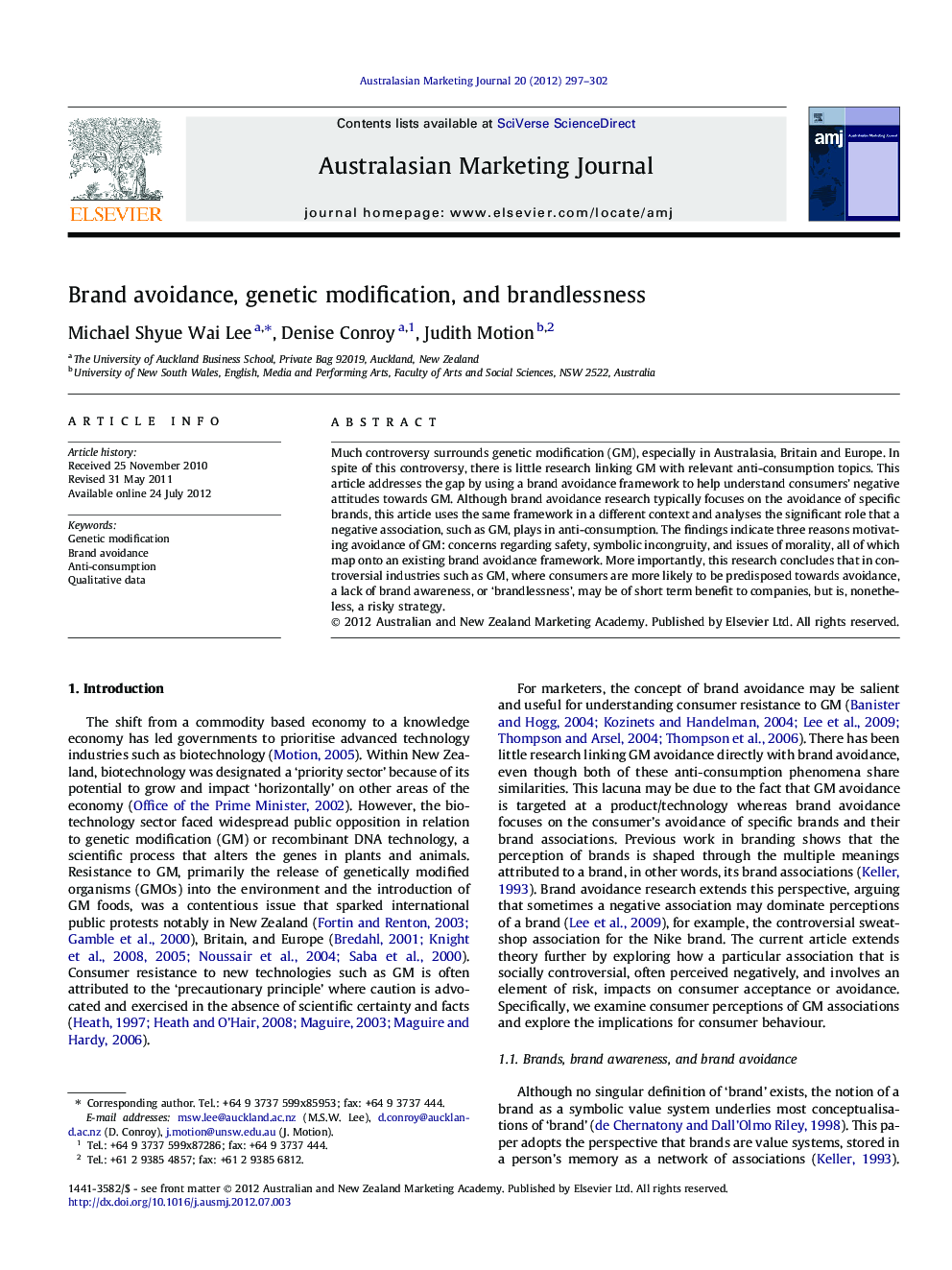| Article ID | Journal | Published Year | Pages | File Type |
|---|---|---|---|---|
| 1026973 | Australasian Marketing Journal (AMJ) | 2012 | 6 Pages |
Much controversy surrounds genetic modification (GM), especially in Australasia, Britain and Europe. In spite of this controversy, there is little research linking GM with relevant anti-consumption topics. This article addresses the gap by using a brand avoidance framework to help understand consumers’ negative attitudes towards GM. Although brand avoidance research typically focuses on the avoidance of specific brands, this article uses the same framework in a different context and analyses the significant role that a negative association, such as GM, plays in anti-consumption. The findings indicate three reasons motivating avoidance of GM: concerns regarding safety, symbolic incongruity, and issues of morality, all of which map onto an existing brand avoidance framework. More importantly, this research concludes that in controversial industries such as GM, where consumers are more likely to be predisposed towards avoidance, a lack of brand awareness, or ‘brandlessness’, may be of short term benefit to companies, but is, nonetheless, a risky strategy.
► Three reasons motivate GM avoidance: safety concerns, symbolic incongruity, and moral issues. ► Actual avoidance of GM is unable to occur without knowledge of specific brands. ► Brandlessness prevents avoidance by hiding the link between a company that uses GM and its brands. ► Contrary to most perspectives of branding, consumer ignorance may be beneficial in some cases. ► When consumers are predisposed towards avoidance, ‘brandlessness’ acts as a short term benefit.
